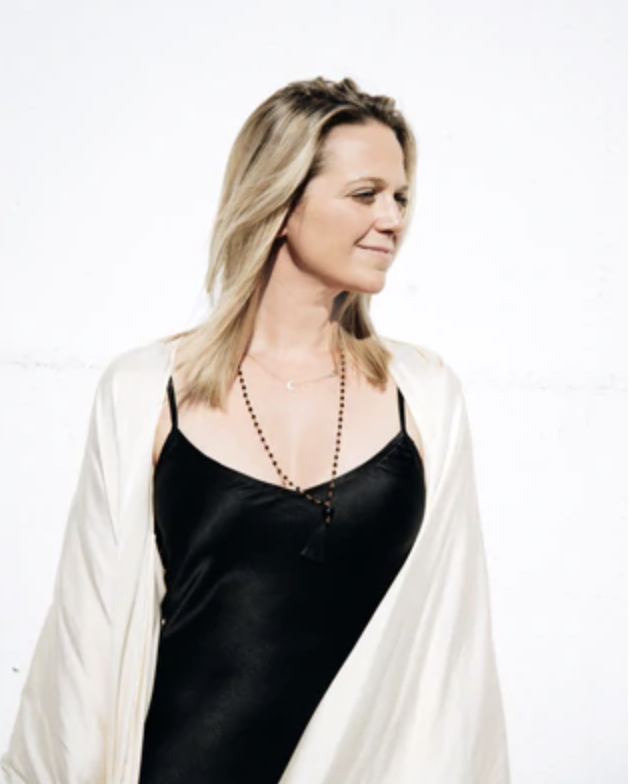Some people think that the key to success lies within their daily routine. Do you agree with this, and if so, what is your daily routine?
Absolutely. A daily routine helps to set our focus and intentions for the day. I also believe it helps to ground the energetic body and creates clarity in the mind for the day ahead. I have a strong meditation practice that I do every morning, along with yoga. I currently spend about 15 minutes meditating, about 5 minutes journaling about what I am grateful for, and then practice 30-40 minutes of you. I do this routine every day and believe it is the foundation of everything else I do.
Looking back at your teenage years, did you have any entrepreneurial interests?
No, I did have an interest in psychology, anything creative, and mind expansion. My teenage years were filled with explorations of astrology, psychology, crystal healing, and different methods to explore the human consciousness. These “hobbies “led me to pursue multiple degrees in psychology, which turned into the business I have today. I’ve had to learn how to be a founder and have certainly made many mistakes on the way.
Is there a specific time of day where you feel most productive?
I generally feel most productive in the morning before lunch. This is when my mind is clear, and I write the best. I do find, though, that for some operational tasks like website updates, I do much better in the evening hours. It seems my brain likes to be creative in the morning but likes to think logistically at night.
Do you think there is one character trait/skill that is important to have in order to become a successful entrepreneur in today’s world?
Courage. I believe being an entrepreneur is all about having the courage to fail, having the courage to succeed, and having the courage to experiment. It’s not easy to do things that no one has taught you or that no one may have even done before. Courage and a sprinkle of confidence are necessary to build anything in this world.
Has being a woman in the business world denied you of any opportunities, how so?
I don’t believe so for myself. I think it does have a negative impact on some other female founders that I have worked with in different sectors of businesses. Due to the nature of my business, which is predominantly female, I think it has actually helped me to be a woman instead of hindering me.
What is one major goal that you wish to achieve by 2030?
I would love to have a Spirit Daughter app by 2030. It’s a project that I’ve had on the back burner because I’ve prioritized growing my family and other parts of the business over the last 3 to 4 years. I think the time will come soon, though, to get started on that project.
Who is your biggest influence, and why?
That’s a challenging one. I think it changes year to year, depending on what I’m working on. Right now, I am majorly influenced by other moms who are CEOs and founders. I look to them for insights on how to balance growing a family and a business at the same time. There is no guidebook for how to take maternity leave while still running a company or how to scale a team while handling toddler tantrums. The women who seem to navigate these challenges with ease and courage are my greatest influences right now.
If you could pick one female entrepreneur, who would you say is your biggest inspiration.
I think my biggest inspiration right now is Emma Grede. She is a mom, investor, CEO, and co-founder of a few companies. I’m sure she has challenging days full of complex decisions, but she seems to navigate them with grace and a bit of humor. She’s also shifting the paradigm of male-dominated board rooms. That’s inspiring.
What has been the most formative advice you have received and why?
“If you can outsource it, do it.” – from your father: Csaba Konkoly.
It is so valuable to have a team. I attempt to outsource everything that I can so I can focus on the heart and soul of the company. I maintain visibility of all areas of the business, but if someone else can do it, I let them.
Do you think the drive to become an entrepreneur is born with or is learned?
I think it’s a combination of both, like many things in our personalities. I do believe that some people are just born risk-takers, which leads them to develop courage, which can then be applied to entrepreneurship. There are definitely traits that may even be genetic that help someone take the leap of founding a company. I do think a lot is learned through and having mentors is essential. But can somebody change their existing stripes? I’m not sure. Entrepreneurship isn’t for everyone and requires a particular set of personality characteristics. Some of these things are probably hardwired in the brain, like risk aversion and motivational behavior. It would be an interesting study to compare the neural anatomy of entrepreneurs to people who have never been interested in running a company. I’m sure there would be some differences there.
CONTACT INFORMATION & SOCIAL MEDIA Spirit Daughter Founder Los Angeles, CA LinkedIn:https://www.linkedin.com/in/jill-wintersteen-2397b6132/ Instagram: https://www.instagram.com/spiritdaughter/ website:https://www.spiritdaughter.com/ Blog: https://www.spiritdaughter.com/blogs/align-with-magic email: [email protected]
